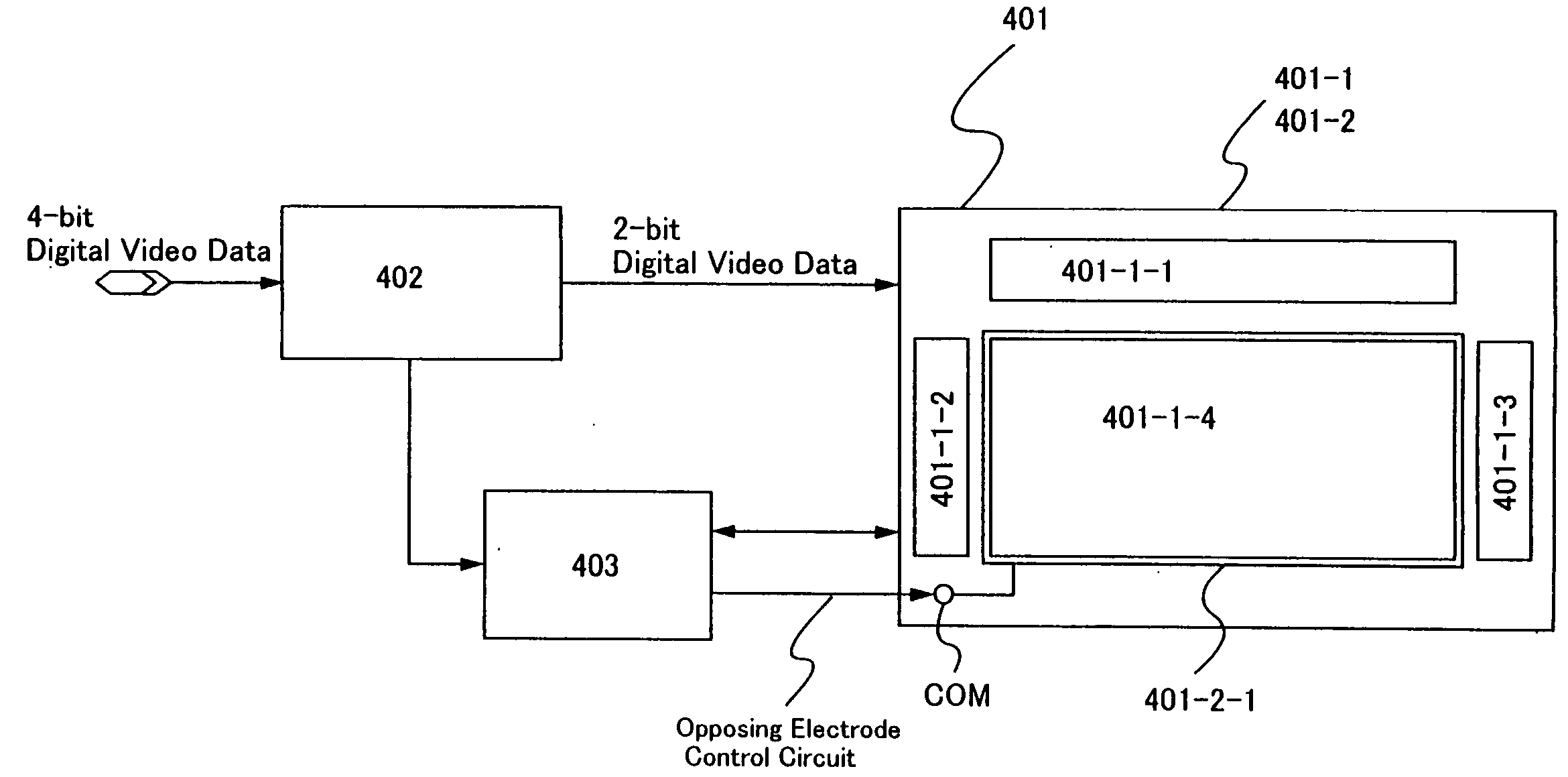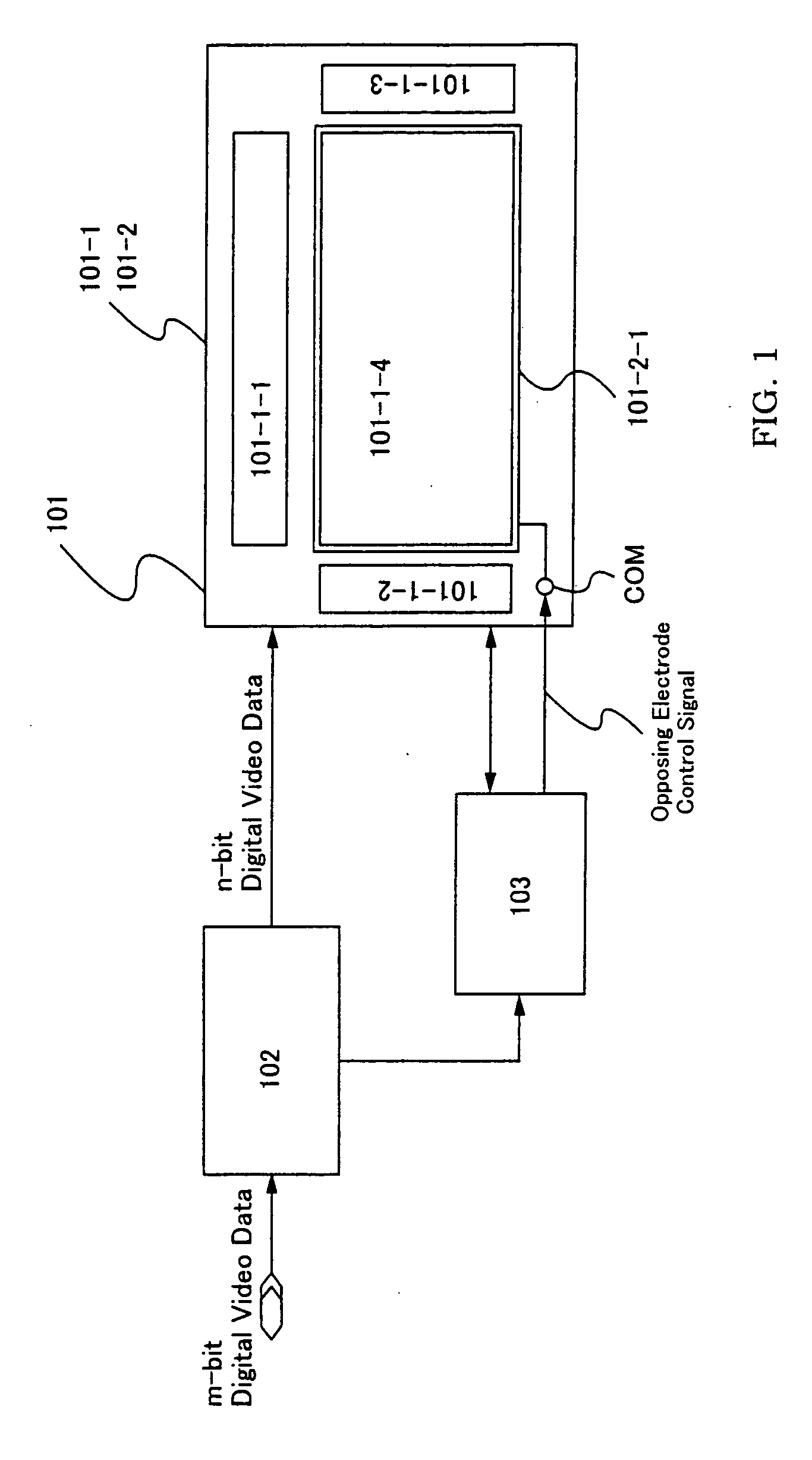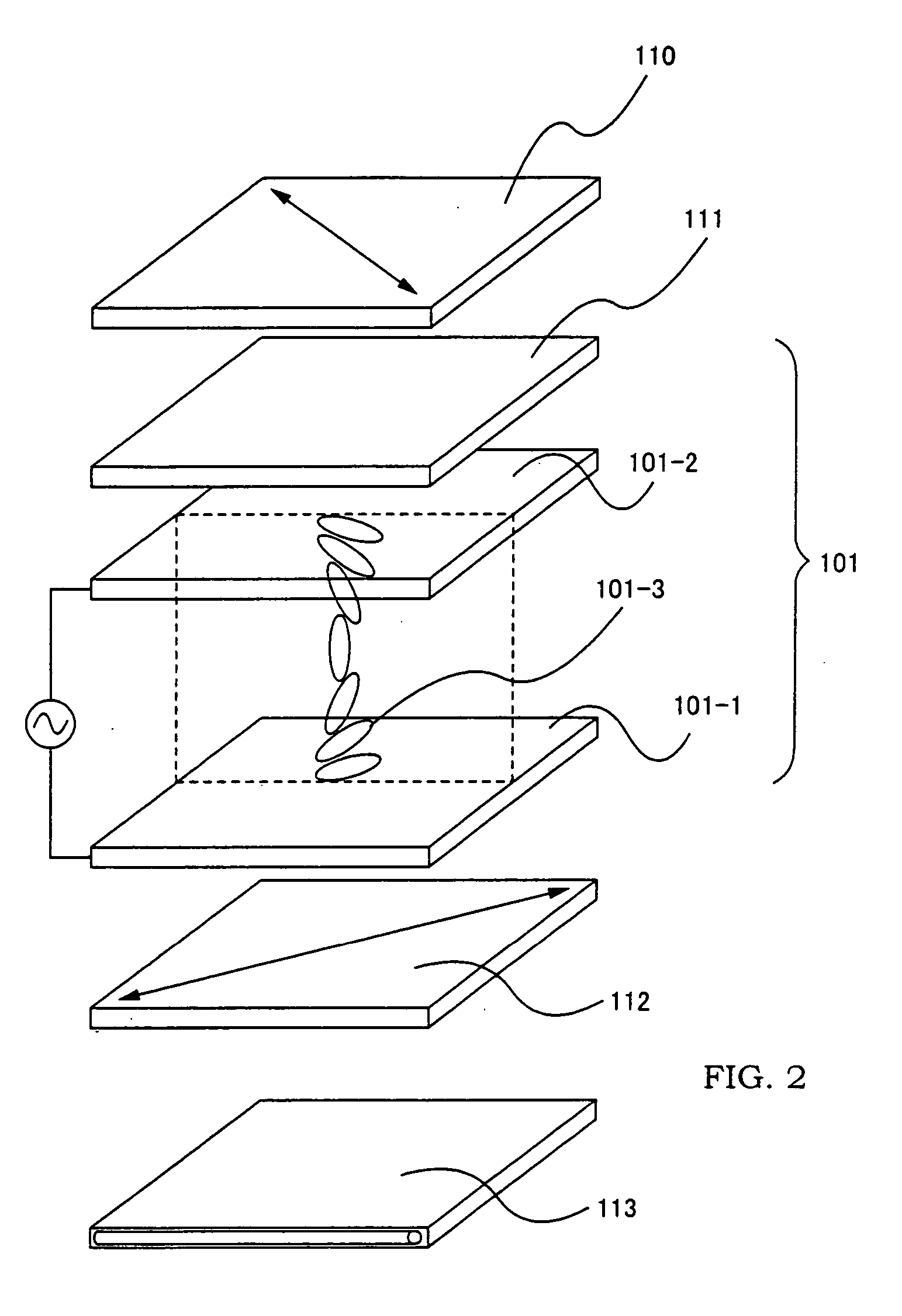Liquid crystal display device
a display device and liquid crystal technology, applied in semiconductor devices, instruments, computing, etc., can solve the problems of difficult downsizing of display devices, reducing the yield of display devices, complicated circuit structure of circuits, etc., and achieves high precision, large display, and high resolution.
- Summary
- Abstract
- Description
- Claims
- Application Information
AI Technical Summary
Benefits of technology
Problems solved by technology
Method used
Image
Examples
embodiment mode 1
FIG. 4 schematically shows a structural diagram of a liquid crystal display device of this embodiment mode. In this embodiment mode, a liquid crystal display device to which 4 bit digital video data is sent from the external is taken as an example with the intention of simplifying the explanation.
Shown in FIG. 4 is a schematic structural diagram of a liquid crystal display device according to the present invention. Reference numeral 401 denotes a liquid crystal panel having digital drivers. The liquid crystal panel 401 comprises an active matrix substrate 401-1 and an opposing substrate 401-2. The active matrix substrate 401-1 is comprised of a source driver 401-1-1, gate drivers 401-1-2 and 401-1-3, and an active matrix circuit 401-1-4 with a plurality of pixel TFTs arranged in matrix. The source driver 401-1-1 and the gate drivers 401-1-2 and 401-1-3 drive the active matrix circuit 401-1-4. The opposing substrate 401-2 has an opposing electrode 401-2-1. A terminal COM is a termi...
embodiment mode 2
This embodiment mode gives a description of a case where frame inversion driving is carried out for every sub-frame in the liquid crystal display device of the present invention which has the structure shown in Embodiment Mode 1.
Reference is made to FIG. 10. FIG. 10 shows a drive timing chart for the liquid crystal display device of this embodiment mode. The pixel P1,1, the pixel P2,1, the pixel P3,1 and the pixel Py,1 are taken as an example and shown in FIG. 10.
In this embodiment mode also, as described above, one frame term (Tf) consists of the first sub-frame term (1st Tsf), the second sub-frame term (2nd Tsf), the third sub-frame term (3rd Tsf), and the fourth sub-frame term (4th Tsf). The initialize term (Ti) is placed before every sub-frame term, and the pixel electrode initialize voltage (Vi) is applied to all the pixels during this initialize term (Ti). An opposing electrode initialize voltage (VCOMi) is also applied to the opposing electrode (COM) during the initializ...
embodiment 3
This embodiment mode employs the structure explained in Embodiment Mode 1 for the liquid crystal display device of the present invention. A description given here is about a case where only the first sub-frame term has the initialize term so that the initialize voltage (Vi and VCOM) are applied and the frame inversion driving is conducted.
Reference is made to FIG. 11. FIG. 11 shows a drive timing chart for the liquid crystal display device of this embodiment mode. The pixel P1,1, the pixel P2,1, the pixel P3,1 and the pixel Py,1 are taken as an example and shown in FIG. 11.
In this embodiment mode also, as described above, one frame term (Tf) consists of the first sub-frame term (1st Tsf), the second sub-frame term (2nd Tsf), the third subframe term (3rd Tsf), and the fourth sub-frame term (4th Tsf). The difference of this embodiment mode from Embodiment Mode 1 resides in that the initialize term (Ti) is placed before the start of the first sub-frame term only, to apply the pixe...
PUM
 Login to View More
Login to View More Abstract
Description
Claims
Application Information
 Login to View More
Login to View More - R&D
- Intellectual Property
- Life Sciences
- Materials
- Tech Scout
- Unparalleled Data Quality
- Higher Quality Content
- 60% Fewer Hallucinations
Browse by: Latest US Patents, China's latest patents, Technical Efficacy Thesaurus, Application Domain, Technology Topic, Popular Technical Reports.
© 2025 PatSnap. All rights reserved.Legal|Privacy policy|Modern Slavery Act Transparency Statement|Sitemap|About US| Contact US: help@patsnap.com



